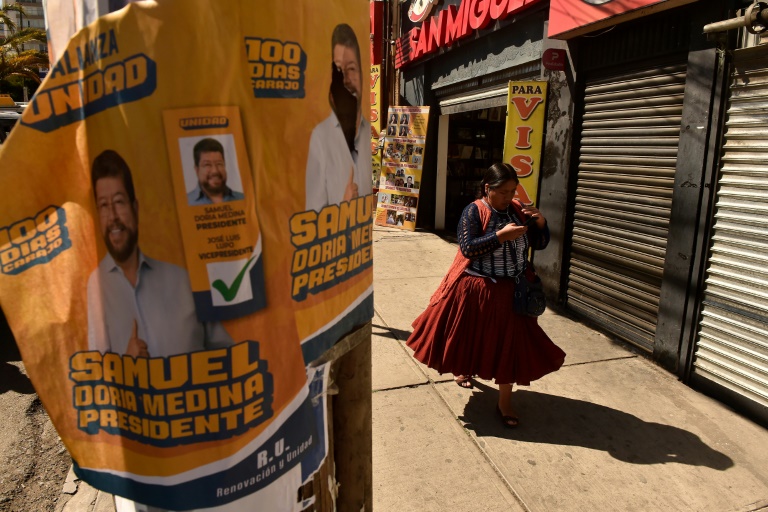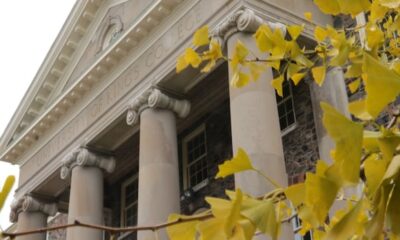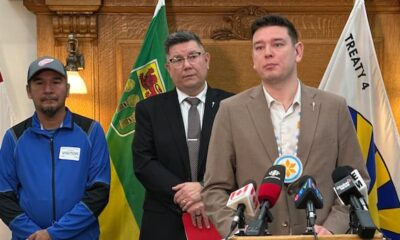World
Bolivia Votes Amid Economic Crisis as Right Seeks Power Shift

Bolivia is poised for significant political change as voters head to the polls on October 15, 2023. The elections come at a time of profound economic crisis, marked by soaring inflation nearing 25 percent and critical shortages of essential goods, including fuel and dollars. The ruling Movement towards Socialism (MAS), which has governed since 2005 under the leadership of Evo Morales, faces a strong challenge from the right, which is eyeing a return to power for the first time in two decades.
Voters are expected to express their dissatisfaction with the current administration led by Luis Arce, Morales’s successor who is not seeking re-election. Polling indicates that center-right business tycoon Samuel Doria Medina and former president Jorge “Tuto” Quiroga are the frontrunners, each polling around 20 percent. If no candidate achieves a majority, a runoff is scheduled for October 19.
Both Doria Medina and Quiroga have pledged to implement radical changes to Bolivia’s economic policies if elected. They advocate for significant cuts to public spending and a welcoming stance toward foreign investment, aiming to strengthen ties with the United States, which deteriorated under Morales.
At a campaign event in La Paz, Marcela Sirpa, a 63-year-old Indigenous street vendor who historically supported MAS, expressed her disillusionment with the party, stating, “They left us all in the gutter.” This sentiment reflects growing frustration among voters, particularly as the economic situation continues to worsen.
Comparisons to Argentina
Analysts draw parallels between Bolivia’s current political climate and that of Argentina in 2023, where voters rejected a long-standing leftist government in favor of libertarian candidate Javier Milei. Daniela Osorio Michel, a political scientist at the German Institute for Global and Area Studies, noted, “What people are looking for now, beyond a shift from left to right, is a return to stability.”
Both Doria Medina and Quiroga are seasoned politicians, with this being their fourth presidential run. Doria Medina, a millionaire and former planning minister, has promised to bring inflation under control and restore fuel and dollar availability within 100 days without cutting anti-poverty programs. Quiroga, who briefly served as president in 2001, called for a complete overhaul of the current system, declaring, “We will change everything, absolutely everything after 20 lost years” during his final rally.
Economic Challenges and Public Sentiment
Under Morales, Bolivia experienced a decade of strong economic growth and significant social advancements, particularly for Indigenous communities. His government nationalized the gas sector, channeling revenues into social programs that halved extreme poverty. However, a lack of investment in exploration has led to a dramatic decline in gas revenues, plummeting from $6.1 billion in 2013 to just $1.6 billion last year.
The situation has become dire, as the government struggles to secure foreign exchange needed to import vital goods, including fuel and food. Protests have erupted across the country as citizens face soaring prices and long waits for essential supplies. Miguel Angel Miranda, a 21-year-old student, articulated the frustration felt by many, stating, “In these past 20 years, we’ve had good income, but the government didn’t invest in anything.”
Morales, barred from running for a fourth term, has exerted significant influence over the election campaign, urging his supporters to spoil their ballots in protest against the electoral authorities’ decision. Matilde Choque Apaza, a leader of a rural Indigenous women’s association, echoed Morales’s call for a “voto nulo,” emphasizing the need for Bolivians to reject the status quo.
As the ballots are cast, the outcome will not only determine the future leadership of Bolivia but also signal broader public sentiment regarding economic management and governance. With the stakes so high, the results of this election will be closely watched both within Bolivia and internationally.
-

 Politics4 weeks ago
Politics4 weeks agoSecwepemc First Nation Seeks Aboriginal Title Over Kamloops Area
-

 World5 months ago
World5 months agoScientists Unearth Ancient Antarctic Ice to Unlock Climate Secrets
-

 Entertainment5 months ago
Entertainment5 months agoTrump and McCormick to Announce $70 Billion Energy Investments
-

 Science5 months ago
Science5 months agoFour Astronauts Return to Earth After International Space Station Mission
-

 Lifestyle5 months ago
Lifestyle5 months agoTransLink Launches Food Truck Program to Boost Revenue in Vancouver
-

 Technology3 months ago
Technology3 months agoApple Notes Enhances Functionality with Markdown Support in macOS 26
-

 Lifestyle3 months ago
Lifestyle3 months agoManitoba’s Burger Champion Shines Again Amid Dining Innovations
-

 Top Stories2 months ago
Top Stories2 months agoUrgent Update: Fatal Crash on Highway 99 Claims Life of Pitt Meadows Man
-

 Politics4 months ago
Politics4 months agoUkrainian Tennis Star Elina Svitolina Faces Death Threats Online
-

 Sports5 months ago
Sports5 months agoSearch Underway for Missing Hunter Amid Hokkaido Bear Emergency
-

 Politics5 months ago
Politics5 months agoCarney Engages First Nations Leaders at Development Law Summit
-

 Technology5 months ago
Technology5 months agoFrosthaven Launches Early Access on July 31, 2025





















